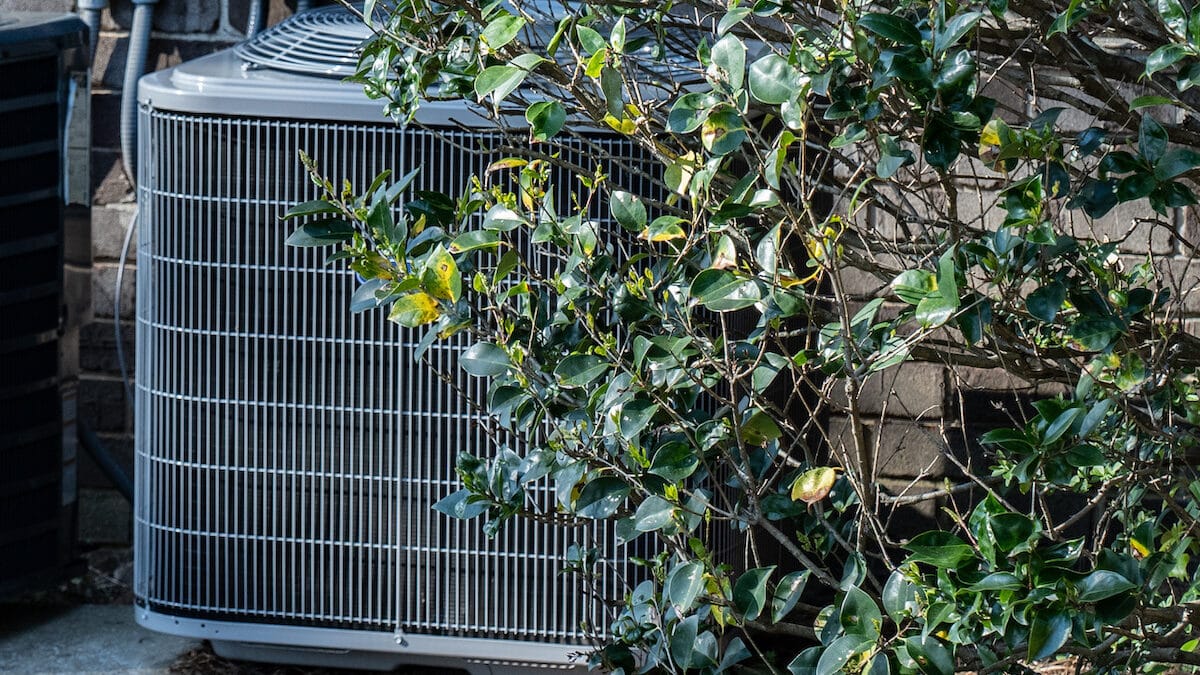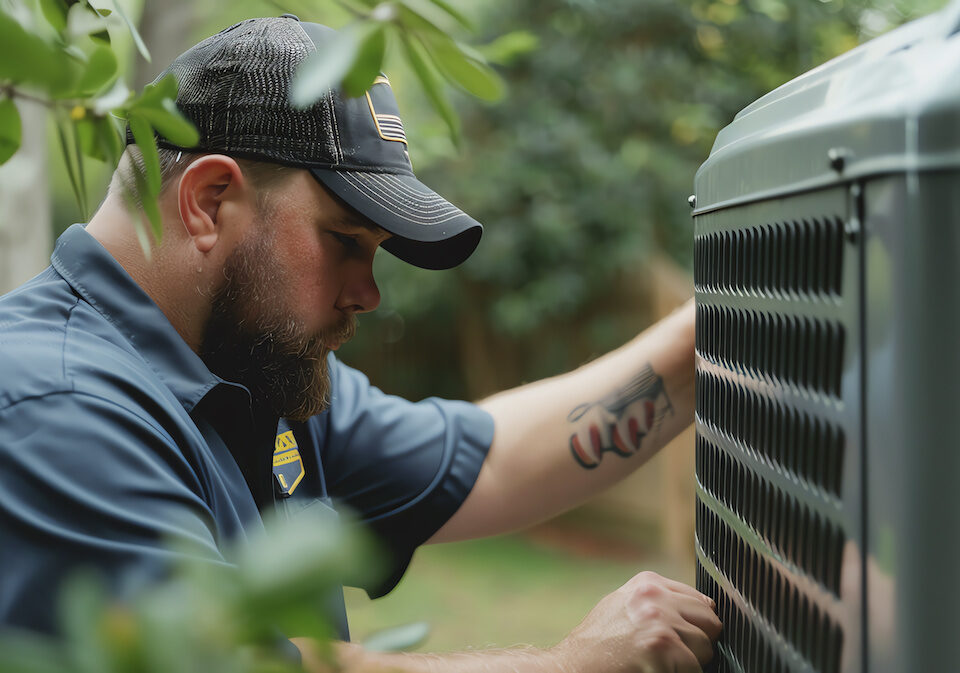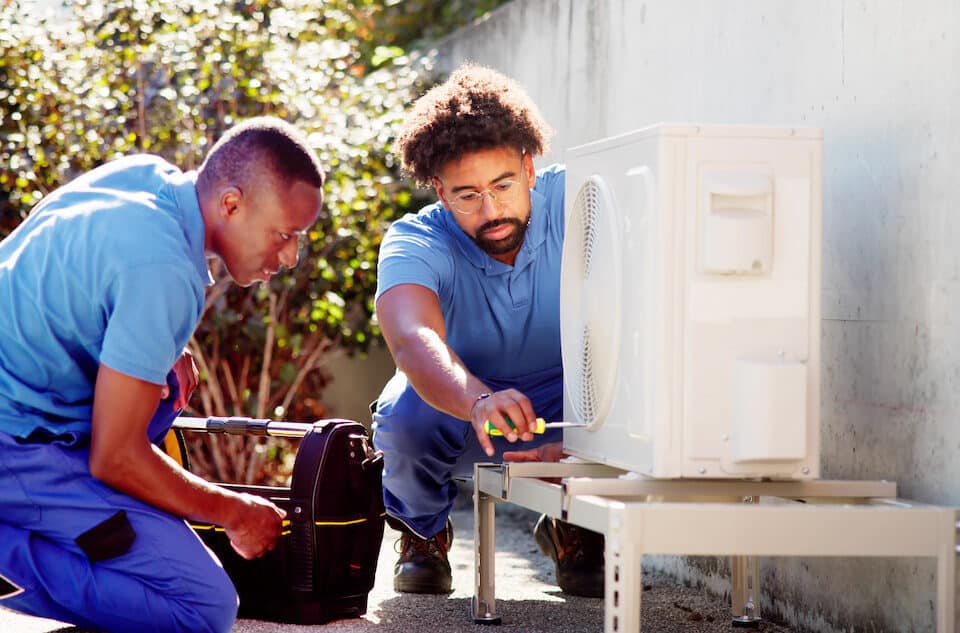How Long Do HVAC Units Last in Georgia?

Many advancements have been made in the field of heating and cooling technology. As features become more advanced and HVAC systems become more complex, their lifespans are constantly evolving, too.
Though HVAC systems are built to last, they can only continue to perform well and efficiently if they’re well-maintained. Not only does regular maintenance increase efficiency, but it also minimizes the chance of breakdowns and could potentially lower your utility costs.
So, how long do HVAC systems last in our modern era? When might you need to replace yours? Read on to find out.
How Long Will My HVAC Last?
If properly maintained, many modern air conditioners and heat pumps generally last between 15 to 20 years.
To prevent wear and tear from happening, you can do some of the basic maintenance work by yourself. There are simple tasks such as changing the filters or landscaping the outdoors to protect the outdoor unit. But having a thorough maintenance check is something that’s best left to the professionals.
The best time to do this is before the start of the heating season (spring) and cooling season (fall). That will allow you to have any problems fixed before the weather changes for the worse. But really, how long do HVAC systems last? Only as long as they’re well maintained.
An aging HVAC system won’t be able to keep your home at a comfortable temperature. As a result, you’ll see increased energy bills. If you have been using your air conditioner or heat pump for more than 15 years, or your furnace has been purchased more than 25 years ago, now is the best time to consult with a heating and cooling company to help you with the upgrade.
A heating or cooling system is a significant investment, and it only makes sense to get as much use out of it as possible. In general, most HVAC systems will last from 15 to 25 years, but depending on the type of system and other contributing factors, that estimate can be highly variable.
Boilers typically last longer than furnaces. There are many factors that can affect the longevity of your system. Consider that the climate conditions when you first purchased your system have significantly changed due to global warming and climate change. In addition, incorrect sizing, improper installation procedures, and lack of maintenance are also factors that can severely affect the performance of your HVAC unit.
What Effects An HVAC Unit’s Life Span?
There are many things that can reduce the life span of HVAC equipment, including:
- Poor maintenance practices
- The poor initial quality or defective components
- Oversizing or under-sizing the system
- Improper installation procedures
- Inordinately high usage or high loads
- Improper usage, such as heating or cooling with windows and doors open
- Installation in salty or corrosive environments, such as coastal areas
Of these, poor maintenance and oversizing are the most detrimental.
With preventive maintenance plans, HVAC systems will last longer because small issues are caught before they require costly fixes. Air conditioners or heat pumps in coastal areas will also see significantly reduced life spans due to salt corroding the condenser unit. The service life of an HVAC system depends on its type.
When You Need to Replace
Usually, a furnace is replaced when the heat exchanger starts leaking, as it is one of the most critical and expensive components. Systems that are poorly maintained or of questionable quality may last as little as 10 years, while oil furnaces typically last only 10 to 15 years, due to maintenance problems caused by the inefficient fuel.
Usually, they are replaced when the heat exchanger starts leaking. Most air conditioners will last 15 to 20 years, though some may last closer to 10. In coastal areas, they typically last only seven to 12 years due to salt exposure. Both air conditioners and heat pumps are usually replaced when the compressor fails or the condenser develops significant corrosion and leaks.
Functionally, heat pumps are similar to air conditioners, but because they can provide both heating and cooling, they are typically used longer each year. Heat pumps in coastal areas will also fail prematurely, with typical life spans of seven to 12 years. Like heat pumps, ductless mini-splits can provide both heating and cooling, with a typical life span of 10 to 30 years, except in coastal areas.
As the system ages, it will gradually become less reliable and efficient, increasing repair and utility costs. Once a system is 10 to 15 years old, the monthly energy savings from upgrading to a newer, more efficient model can often justify the initial investment, especially if the current system is unreliable or has major problems.
Call in a Professional to Inspect Your Aging HVAC
We can perform a full inspection of your system and estimate its remaining service life. We offer complete replacement services if you choose to upgrade, as well as comprehensive maintenance and repair services to keep your system running smoothly.
When you invest in a new air conditioning system, especially in a warm state like Georgia, you want to know that you’re purchasing something that will last for years to come. The thought of facing a sweaty summer without AC is practically unbearable, so you need to know that a ductless mini-split system is reliable.
Trust the professionals here at Trust Heating and Air to get the job done right. Contact us for a free estimate now.



